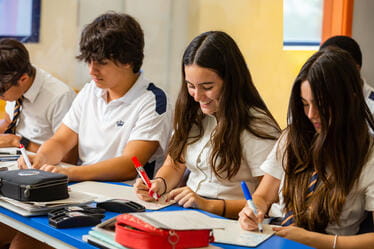We use cookies to improve your online experiences. To learn more and choose your cookies options, please refer to our cookie policy.


Theodor W. Adorno, a renowned german philosopher, famously said: “To write poetry after Auschwitz is barbaric. And this corrodes even the knowledge of why it has become impossible to write poetry today”. This passage can be found in Cultural Criticism and Society (1949), and it is much cited by all the cultural critics since published. After all, how can we keep doing art in such a difficult time? After facing and experiencing tragedies, what’s the meaning of the art?
This collides directly with a question students tend to ask themselves and us, teachers, usually: what is art for? Specifically for us, language and literature teachers, “what is literature for?” What’s the use of the literature? After trying to answer this question in many different ways - none of them seem to be enough, students may be really inquiring when trying to convince you they don’t need to read a book - I decided to respond to my inquisitors with the only justification I had not tried before: my truth and my honesty. Once, I took the risk and when the frightening question popped up, I just said: nothing. “That’s it guys, literature is useless, I could not list one direct use for it. But try to imagine a world without literature. Try to imagine a world without art. Imagine you’re living in a universe in which you have to deal with realness all the time. With facts all the time, news, numbers, tragedies, only this. You don’t have a refuge. You don’t have where to go or to hide, you can only face life as it is”.
There it was. There was my answer: literature helps us to deal with real life, it provides us an escape route. It is where you can go when you need help to process everything else. But it doesn’t mean literature alienates us. Actually, it’s the opposite. There are some genres which offer an interesting mixture - for us, teachers, it’s the best part of our courses - within reality and fiction. Side by side, helping you process your world, provoking you to think about your life, the time you live in, the facts you have been facing. Literature may also disturb you, make you feel uncomfortable, make you want to change. And that is wonderful: the power of changing, of transformation and of modifying.
The MFL department knows we have been facing some really difficult times. From every side, we are constantly receiving horrifying news and most of them without an improving perspective. Our students feel it as well, they are frequently bringing these topics to the lessons and showing us they want to debate. Taking this into consideration, we decided to develop different projects with our kids during our lessons, involving the world around us, language and literature.
Y7 Portuguese 1 students read and listened to some important podcasts and news regarding United Nations hungry map. Brazil has come back to this map after being seven years out of it. As a result, we analysed some important publicity made by the government at the end of the 90’s and beginning of the 00's to mobilize citizens to help in collecting food all over the country. Students made their own campaigns for 2021, based on some research on initiatives already going on to deal with the hungry situation.
Tiago Lanfranchi Martins - Y7
With our Year 8, Spanish A students, we have been reading and discussing the book “La distancia entre nosotros” (“The distance between us”), by Reina Grande, a Mexican writer. The book talks about a family which was separated by some financial necessities. Therefore, the parents had to leave to the US and left their kids in Mexico, living with their grandmother. The book tells us about the difficulties in migrating, for those who leave and for those who stay.
Year 11 Portuguese B students engaged in a large and complex discussion about body acceptance and aesthetics pressure. It is really important to discuss this with our teenagers, who may feel uncomfortable with their self images. The result was some really interesting posters reflecting on the topic.
Ceren Aray - Y11
IB students have a long trajectory and discussing the world around them is a fundamental part of their path. Portuguese B students from year 12 have also done a complex discussion about the hungry situation in Brazil and how this may be related to some history and identity issues of the country. They read important fragments of the recognized book “Quarto de despejo” (“The trash room”), by Carolina Maria de Jesus. The author presents her diary, from the years she had to deal with the hungry as her neighbor. After reading and discussing it, they also came up with some campaigns.
Juan Andres Rodriguez Sanchez- Y12
These are a few examples of what we mean when we say it is impossible to separate literature from reality, language learning from the world around you and teaching from reflecting. Students need to learn content and they do it while developing their character. And it is a pleasure to be part of this process.